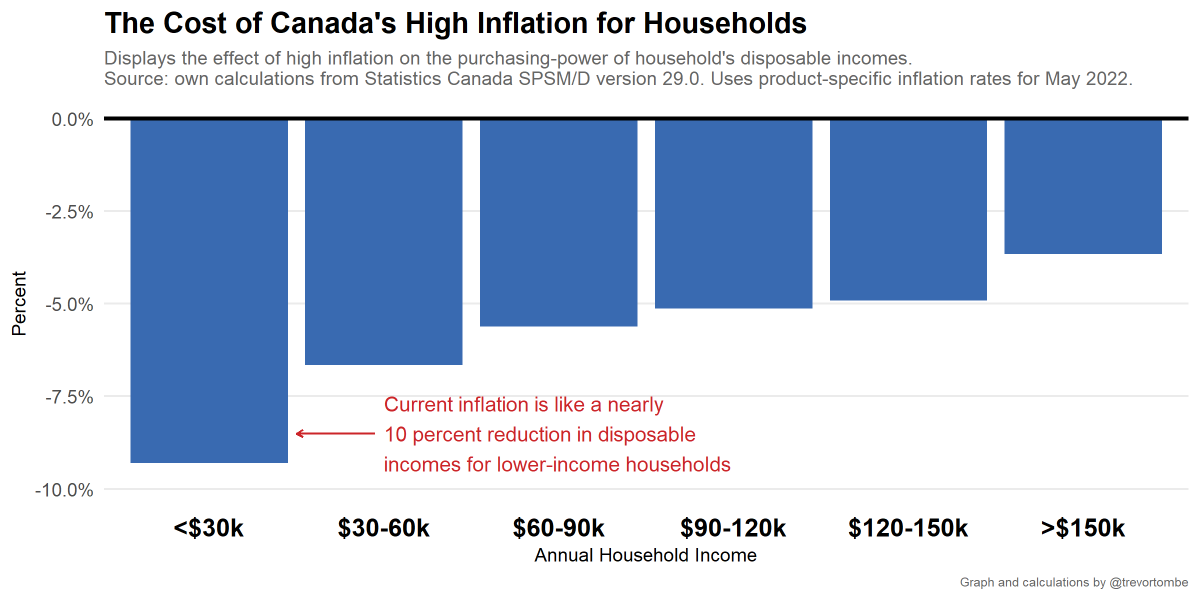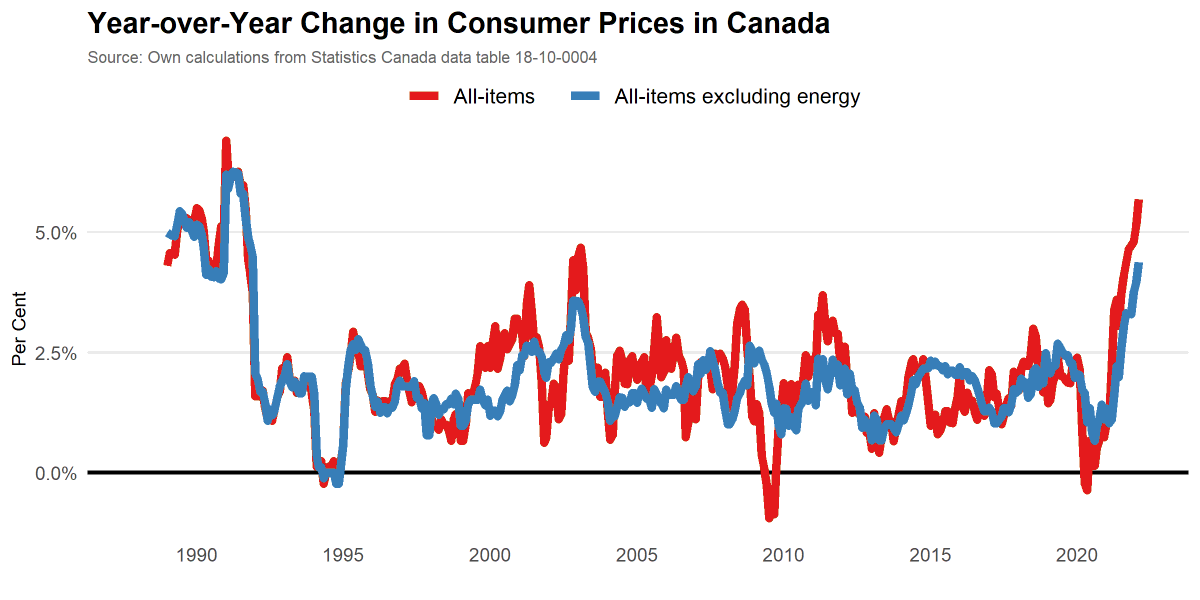
The federal deficit this year is projected to fall to $36b from Budget 2022's projection of $53b. Here's the breakdown of what caused the change. #cdnecon #cdnpoli 

Hard to be precise, but it looks like the overwhelming majority of the increase in income taxes is due to high oil prices.
Corp income taxes up nearly $23b. That's almost two-thirds of the change. Oil & gas, mining, petroleum products dominate the increase in corp profits.
Corp income taxes up nearly $23b. That's almost two-thirds of the change. Oil & gas, mining, petroleum products dominate the increase in corp profits.
Interestingly, total GST revenues are projected to come in lower than Budget 2022 expected. I anticipated an increase due to inflation (higher prices --> higher GST payments). Likely due to the slowdown in economic growth currently happening (and reflected in the projections).
Ahhh, GST revenue is going to be higher but they implicitly net out the boosted GST credit within that number. That's shaving 2.5b off of the GST. So absent that policy choice GST revenues would have been ~2b higher.
• • •
Missing some Tweet in this thread? You can try to
force a refresh














